Who the Heck Was Veda Ponikvar?
Veda Ponikvar was born in Chisholm in 1919 to Slovenian immigrants who worked in the mines that dotted the Iron Range. Ponikvar didn’t learn English until she started school, but soon became a star pupil in her Chisholm school. By the time she was 11 years old, she’d made up her mind about her future–she wanted to run a newspaper. The idea likely came from watching her father read the newspaper cover to cover every night after dinner.
After high school, Ponikvar was admitted to the School of Journalism and Political Sciences at Drake University in Des Moines, Iowa in 1938. She graduated with honors in 1942, but she put her newspaper dreams on hold to enlist in the U.S. Navy WAVES. Her Slovenian background led to a placement to begin training as a linguist at Smith College in Massachusets. After completing training, Ponikvar was assigned to naval intelligence in Washington D.C. She spent the next three years interpreting information for the Office of Naval Intelligence on Eastern Europe and Yugoslavia.
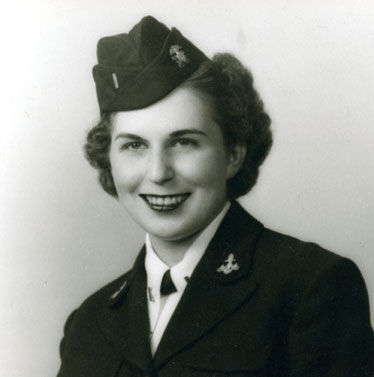
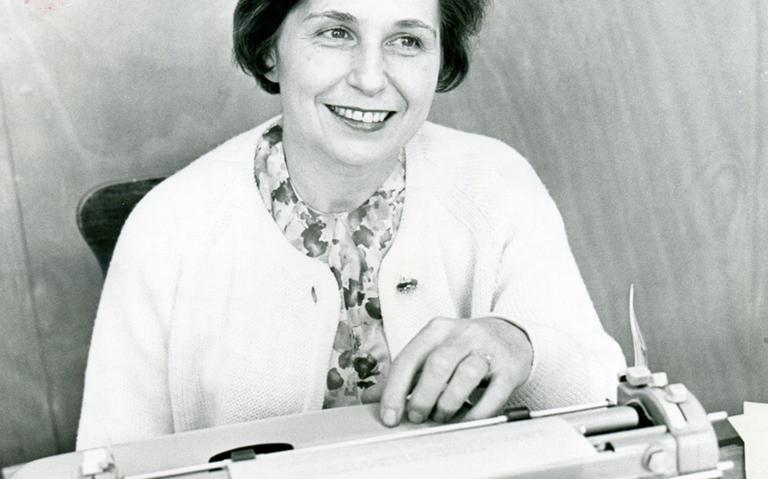
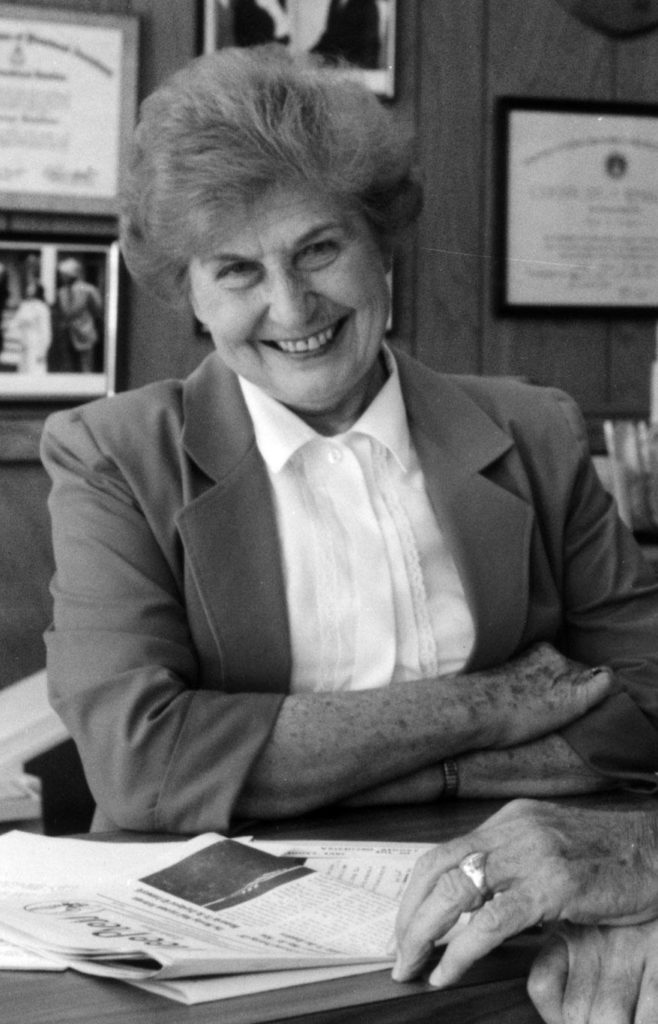
After being discharged as a lieutenant commander in 1946, Ponikvar returned to Chisholm and followed through on her childhood dream. She founded a weekly newspaper, the Chisholm Free Press. The first edition of the paper came off the press in Minnesota on July 2, 1947.
A decade later, she purchased a competing newspaper, the Chisholm Tribune Press. Ponikvar felt the paper had been taken over by the mining companies and didn’t reflect the views of mine workers. She changed that and operated both newspapers until 1996, alternating publishing on Tuesday and Thursday.
Over the years, Ponikvar wrote more than 4,000 editorials and another 300 after she became publisher emeritus. Operating in an age when independent newspaper publishers felt the pull toward community leadership, she did her homework and presented facts to readers on issues that would directly impact their lives. Her goal was to be seen as a positive, but honest, voice in the region’s top events, including the 1964 Taconite Amendment and the signing of the Boundary Waters Canoe Area Wilderness act in 1978. Because of that, both newspapers became powerful forces beyond Chisholm, often going tow-to-tow with mining companies and giving miners a voice. Her impact in the region earned her the nickname, the iron lady.
Ponikvar was more to the people of Chisholm than the iron lady, she was a respected journalist who not only covered the big stories, but the smaller ones, too. One of her most recognizable writings was an editorial in 1965 after the death of a beloved local doctor:
“As the community grew, Doc became an integral part of the population. There were good years and lean ones. There were times when children could not afford eyeglasses, or milk, or clothing because of the economic upheavals, strikes and depressions. Yet no child was ever denied these essentials, because in the background, there was a benevolent, understanding Doctor Graham. Without a word, without any fanfare or publicity, the glasses or the milk, or the ticket to the ball game found their way into the child’s pocket.”
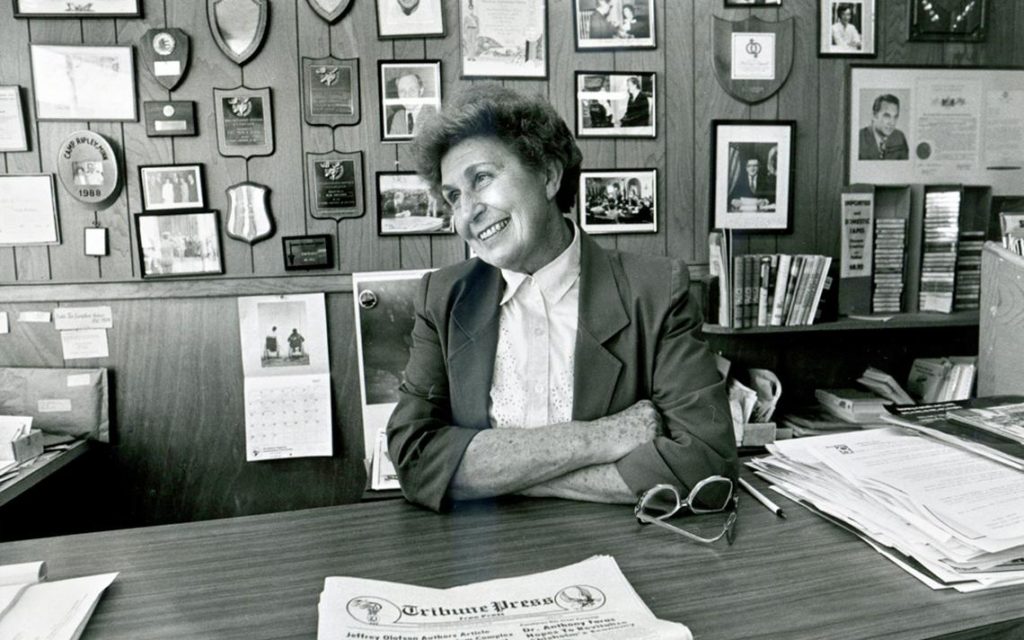
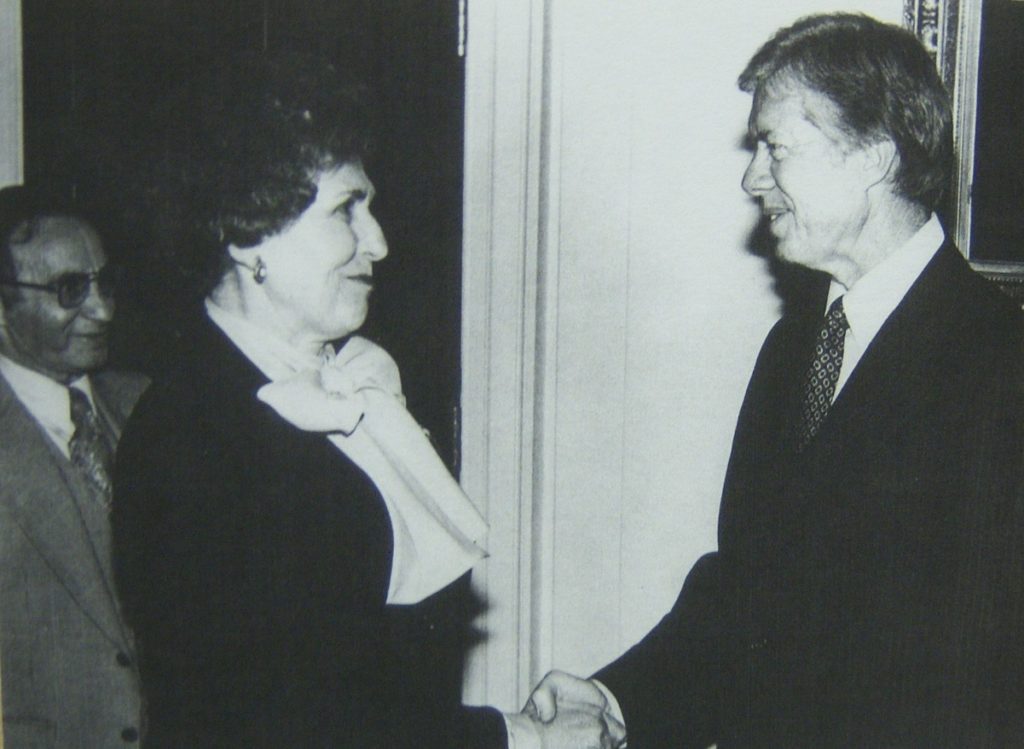
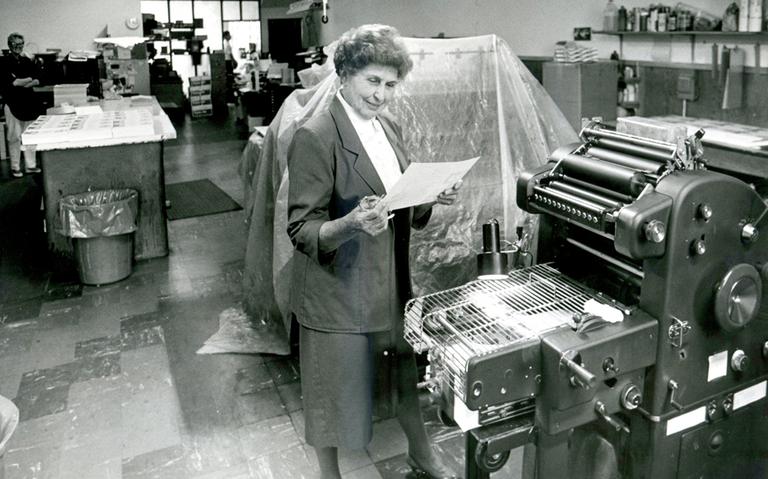
Sound familiar? When author W.P. Kinsella visited Chisholm to research Dr. Archibald “Moonlight” Graham, Ponikvar was there to help. She handed him the editorial she wrote the day after the former major league baseball player, turned local physician, died. The exchange made it into Kinsella’s book, Shoeless Joe, and became a memorable scene in the best film ever, Field of Dreams.
Ponikvar died on October 13, 2015. After her death, many praised her lyrical writing style, self-assured personality, and influence–both locally and nationally. But it was her knack for understanding people and willingness to get her hands dirty when needed that have become her true legacy. She welcomed presidents and political figures from the United States and beyond to Chisholm with a home-baked walnut potica or cottage cheese and apple strudel. She regularly visited wounded soldiers at Walter Reed Medical Center and planned sendoff and welcome home ceremonies for the troops. She served on the board or commissions of the Range Center, Chisholm Community Foundation, Chisholm Economic Development Authority Board, Central Iron Range Development Board, Chisholm Community Education Board, Ironworld Museum, Minnesota Museum of Mining, the Chisholm High School Scholarship, among others. Her obituary is well worth a read if you’re interested in seeing more about how she impacted her community.
Now, the next time you watch Field of Dreams and Ponikvar’s character comes on the screen, you can pause the movie and share a little something about the real-life Veda Ponikvar with your friends.
